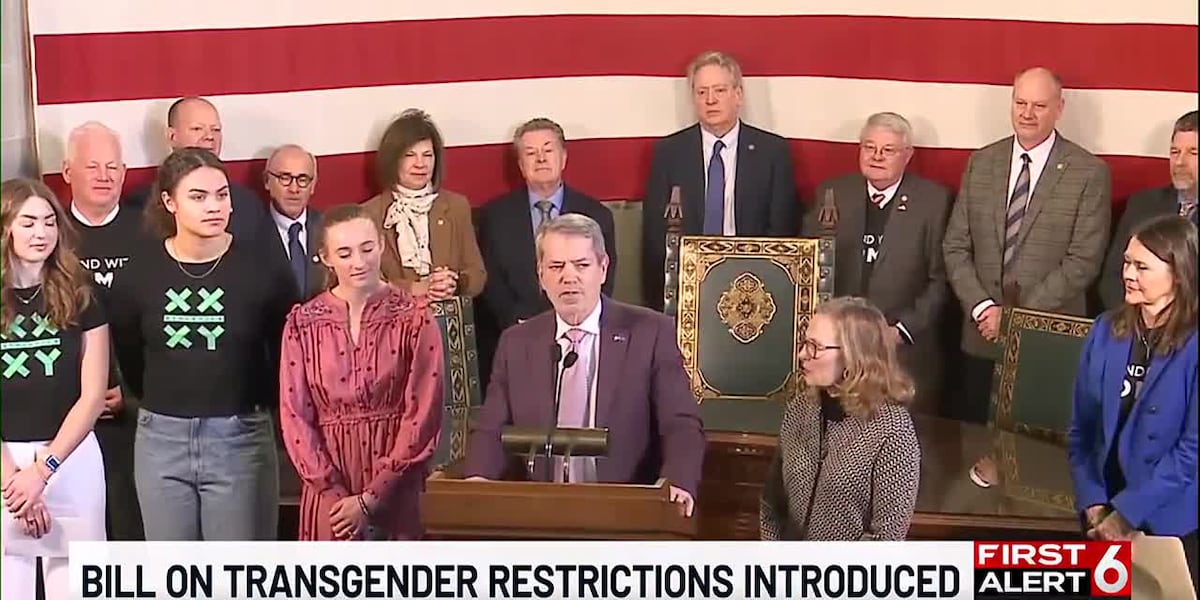LINCOLN, Neb. (Nebraska Examiner) – Nebraska’s K-12 schools face mandates at the state and federal levels that cost local property taxpayers money and cost teachers time in class, a legislative committee was told Tuesday.
The discussion during an interim study hearing focused mostly on state mandates, including two hours of transportation training and a rule that school libraries subscribe to at least 25 periodicals.
But state lawmakers also heard about another costly problem plaguing teachers and schools: student behavior.
Riverside Public Schools Superintendent Stephanie Kaczor told Education Committee members she and teachers in her north-central Nebraska district have seen a sea change in how kids behave.
Lashing out
More students, especially the youngest, are more likely to hit, bite or lash out against adults and other kids than in her previous two decades of teaching, Kaczor said.
She said all classroom teachers, in addition to those in special education, see more children who are struggling to regulate themselves and need to learn how to interact with others reasonably.
Where once the district’s two schools might have had a single student pulled out of class on a given day, she said, they sometimes have three out at once. That requires staff time.
The committee chairman, State Sen. Dave Murman of Glenvil, asked what is contributing. She said it might be lost socialization during the pandemic, busier parents and stimulation from screen time.
“When they don’t have that constant stimulation, that’s why we’re seeing behaviors,” Kaczor said.
The rise in aggressiveness with staff and other students leaves teachers forced to address the outbursts of a single student, often at the expense of teaching time for others, she said.
She explained that this, combined with a new state law banning suspensions for kindergarten through second-grade students, has left schools scrambling while they are short of staff.
“There are some points when someone needs to be removed from the room,” Kaczor said. “I don’t care what age you are. Where do those kids go and who looks after them? You don’t have the people or the place.”
Training questions
She said her district receives requests from teachers for more training on behaviors but often has to juggle the time that takes with other state and federally mandated training.
She said teachers in Nebraska attend about 23 hours of mandated training a year, including about state and federal mandates. While some training occurs on days when children aren’t in school. Other sessions require teachers to miss class time.
Costs quickly rise when districts have to find substitute teachers and are already short on paraeducators, said Steve Koch, a farmer and cattle feeder on the Hershey, Neb., school board.
Koch estimated that every hour of staff training costs his rural district in west-central Nebraska about $3,900. And every eight-hour training session costs about $31,200.
The cost of mandated training days balloons in larger districts to about $158,000 a day in Bennington, $329,000 a day in Kearney and $367,000 a day in Millard, school officials testified.
“While important, those are dollars we now need to pull from some other pot or pull from our taxpayers, which we do not like doing,” Koch said.
Flexibility sought
Koch and Kaczor said schools need more flexibility on training requirements to respond more capably and cost-effectively to changes in the student population and local needs.
As an example, Koch pointed to the broadly supported but unfunded state mandate that schools provide education in financial literacy, which he said costs his district $13,000 a year.
His business teacher now needs to teach two class periods of financial literacy per day instead of one. He said lawmakers need to consider the impacts of “one-size-fits-all approaches.”
Millard Education Association President Tim Royers, a longtime high school history teacher, said the state might need to step in to help fund some federal mandates.
His example was “504 services,” which are education plans for individual students who don’t meet the requirements to access special education services or funds but need specific help.
Students qualify if they have a physical or mental impairment that limits them from engaging in “major life activities,” including academic performance, and schools are using 504 services more frequently, Royers said.
But while schools cannot use special education funds to help with such services, he said, they can lose access to special ed funds if they fail to meet the requirements of those 504 plans.
“My biggest recommendation would be this: Please do not place an added requirement on our schools without putting the money in to pay for it,” Royers said.
Suggestions welcome
State Sen. Lynne Walz of Fremont sought the hearing on unfunded mandates in Legislative Resolution 166. She said she wants school employees to recommend requirements the state can cut.
Walz said she hopes the Legislature will consider giving the schools more flexibility in meeting training requirements and eliminating mandates that matter less.
“The thing that struck me the most was when I heard one of the testifiers say our teachers know what they need for training in their classroom,” Walz said. “They’re begging for those things.”
State Sen. Joni Albrecht of Thurston asked those testifying whether Educational Service Units were placing mandates on school districts regarding social and emotional learning.
School officials told her that ESUs had no authority to mandate such things and that districts adopting such approaches were doing so by exercising their own local decision-making.
After the hearing, Murman said the testimony from educators about the impact of the state law banning suspensions for the youngest students has left him with some “second thoughts.” He supported the broader education package that included the change.
He said most teachers and administrators consider suspensions a “last resort.” He said suspensions sometimes force parents and students to communicate about the need for a child to behave.
Legislative advocates for the law have said they wanted to keep young struggling students, many of whom are coping with outside problems, from missing too much school time and falling farther behind academically.
“Leaving it up to the local district, that is probably a good thing to do,” Murman said.
Nebraska Examiner is part of States Newsroom, a network of news bureaus supported by grants and a coalition of donors as a 501c(3) public charity. Nebraska Examiner maintains editorial independence. Contact Editor Cate Folsom for questions: info@nebraskaexaminer.com. Follow Nebraska Examiner on Facebook and Twitter.
Click here to subscribe to our 10/11 NOW daily digest and breaking news alerts delivered straight to your email inbox.
Copyright 2023 KOLN. All rights reserved.



























/cdn.vox-cdn.com/uploads/chorus_asset/file/25822586/STK169_ZUCKERBERG_MAGA_STKS491_CVIRGINIA_A.jpg)

